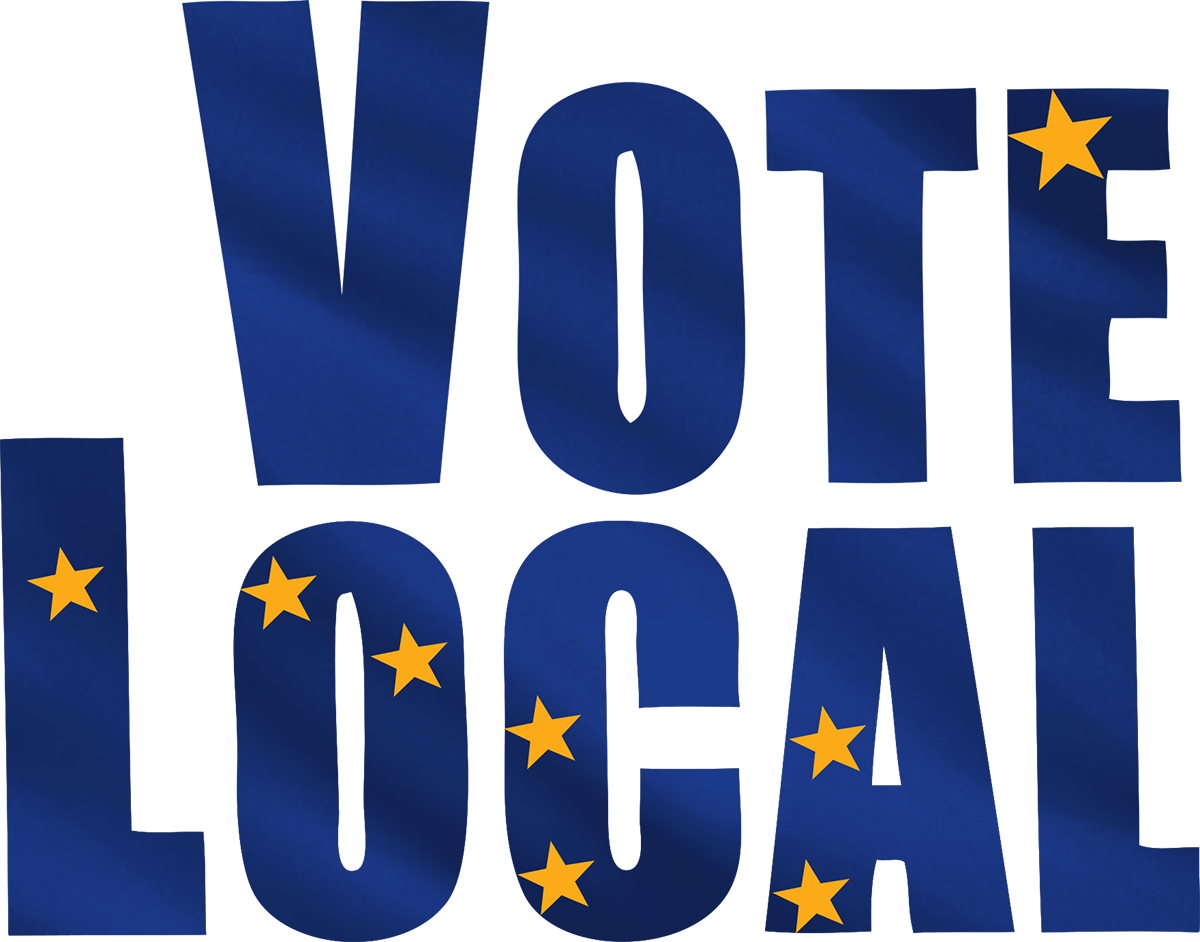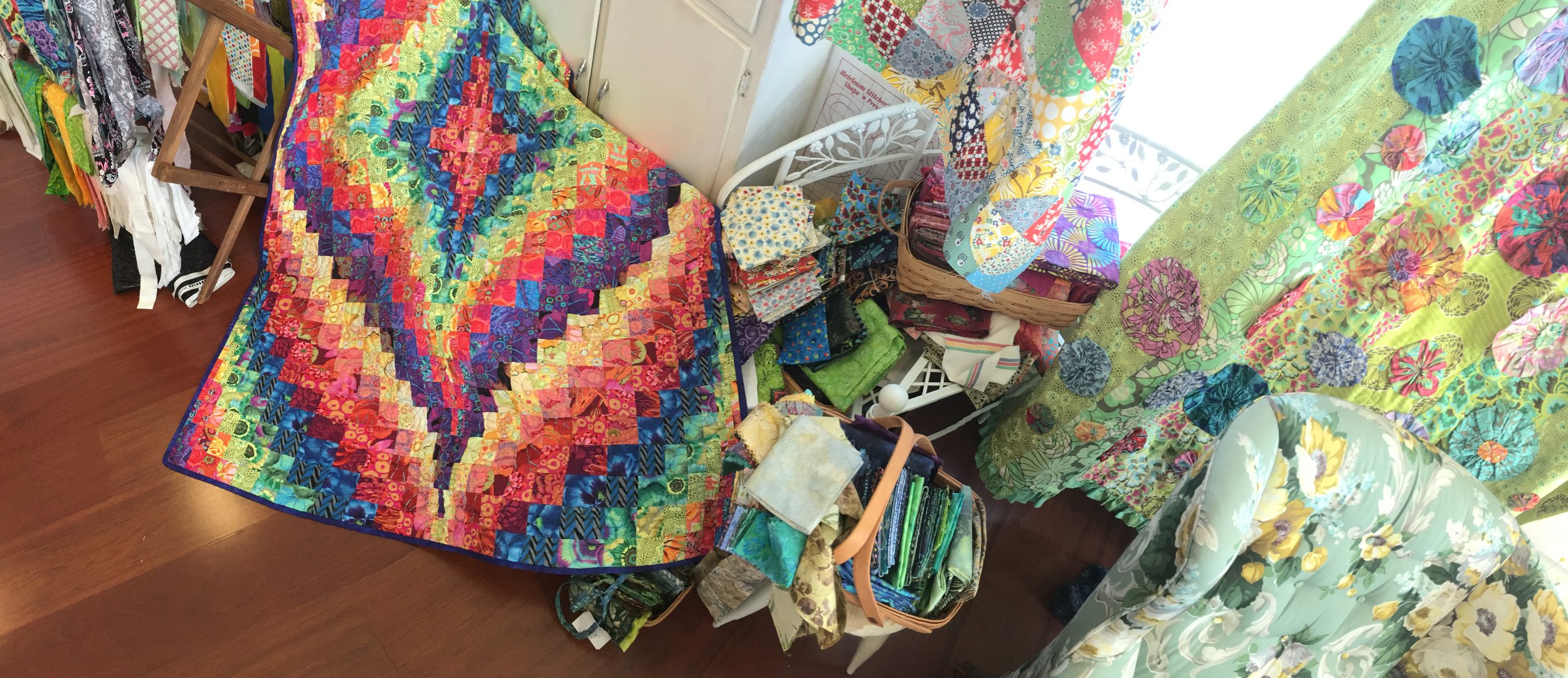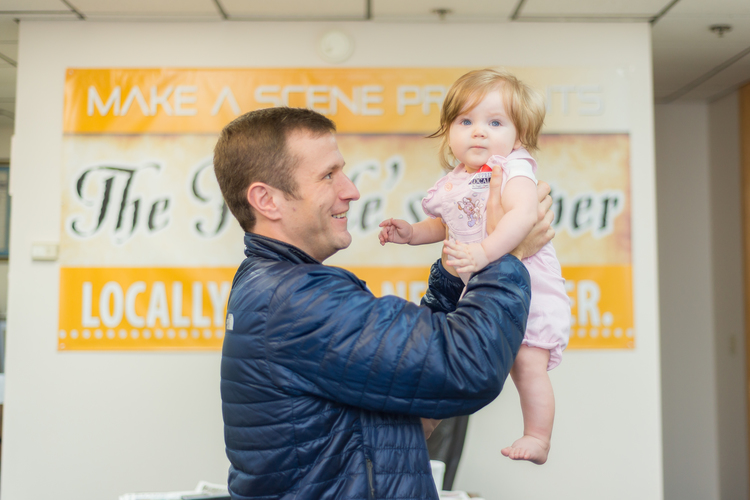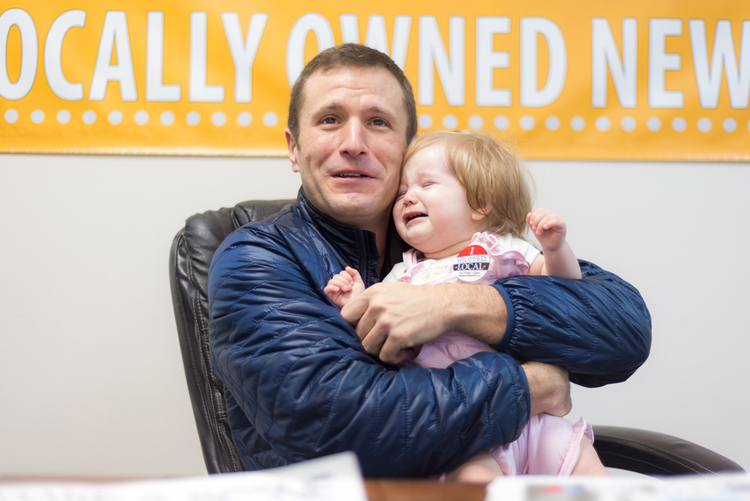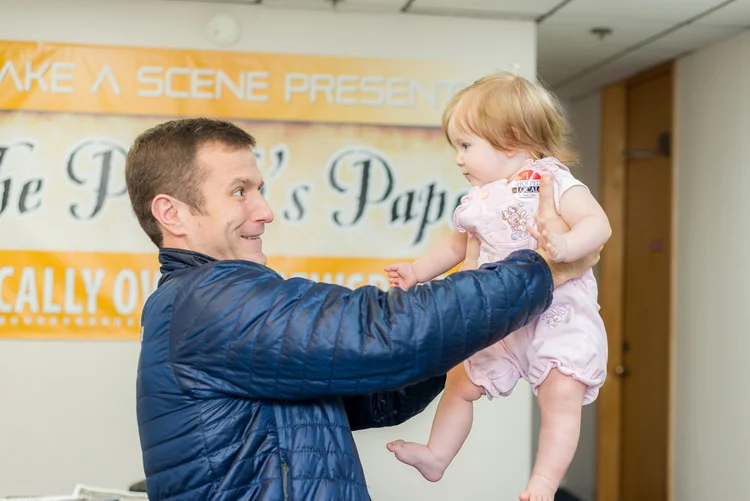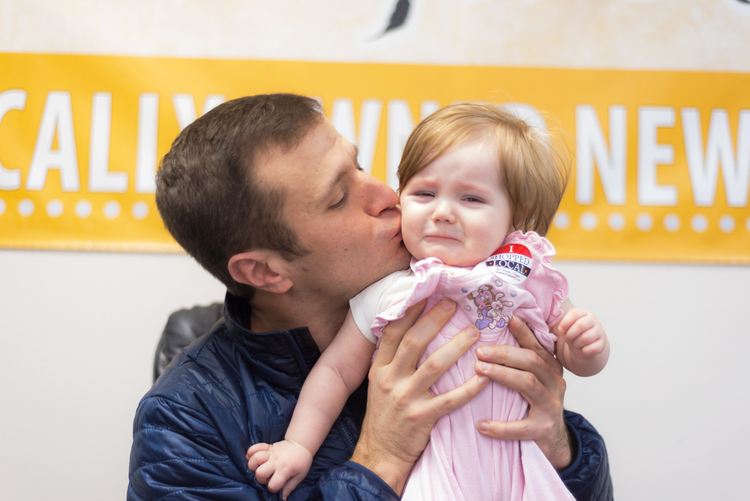As this publication enters year 10, I consider the work that went into this business to keep it going these last 9 years. I can't help but consider the hard work of a man I never knew, Vaughn Fryfogle, Sr., who passed away on February 13, 1975 - over 40 years ago, before I was born. So much time and heart and family goes into a business, and that's what comes out of a business too.
If you work hard, like my great grandfather.
Vaughn Franklin Fryfogle, Sr.
He started a business in small town Mississippi: V.F. Fryfogle's Hardware. From that lifestyle sprung a tradition of business ownership in my family. Of course, that was more common then, when my great grandad was in business, before corporate interests "invested" so heavily in our communities...
But I digress.
He was a "Yankee" in small town Mississippi, something that would certainly present some obstacles to success. Still he was accepted and admired, despite his unorthodox religion, German heritage, or Yankee roots. My Pawpaw Fryfogle would only attend Jehovah's Witness meetings, because the other church groups at the time were still segregated. He donated the land for their Kingdom Hall, and the materials from his hardware, and built it too. But he was a freethinker, refusing to be baptized into their organization.
Before he opened the hardware store, he built houses all over the area, tearing down old buildings and reusing the lumber and nails. He learned efficiency when times were tough, learning to work hard and smart. The Great Depression was during the prime of his life, and he was the product of that time.
Looking back on my teens and early twenties - a life of ease compared to my grandfather's boyhood - the time I spent working for family, I see how much it shaped me.
I worked with a man named T.A. Rampshure, who knew my great grandfather very well. He worked for him in that old hardware store. He installed carpet and vinyl flooring back then, a subcontractor for my Pawpaw Fryfogle, and continued to do so throughout his life. T.A. taught me to install flooring, and paid me a percentage by the yard. He taught me to hustle.
T.A. expected a lot of me.
T.A. was working primarily for older folks in the community, by the time I came to work for him at around 16 years old. As his helper, I hauled the tools, did all the running to and from, heavy lifting, and learned the skills of a carpet mechanic along the way. Still, I learned something more than that.
Helping T.A. allowed me to work in the homes of the elders of that community. The people who requested T.A.'s services were usually of that generation, my great grandad's generation; his customers from the old hardware.
I would walk in, and these older folks would look me up and down, and ask, "Who's boy are you?" They knew I was a Fryfogle, by family features, so they didn't bother confirming. They just wanted to know which of my Great Grandfather's sons I had descended from. I would oblige politely, and they would always take the time to tell me how much they respected him, by telling me something about him.
"Hardest working man I knew!"
"An honest man."
"All business!"
"You could set your clock by him. He was dependable."
The compliments and admiration from these elders, heaped upon my young head as if it were my inheritance, was a heavy burden to me because I was none of those things that they said about my Great Grandad. I was a reprobate, school dropout, good for nothing, dishonest, untrustworthy kid who only worked because I had to. I did not appreciate those accolades then, at least not for what they were. I might have pretended I was worthy for a moment or two, basking in the glow of someone else's accomplishments. But I always knew it wasn't deserved.
These elders expected a lot of me.
T.A. would always nod along in agreement during these predictable conversations.
These people who knew my great grandfather, they spoke so highly of him. They didn't bring up his material wealth, but they did talk about his character, his unique characteristics, what made him someone to remember. His financial security was a side note in his legacy; wealth was a side effect of his worth.
This alludes to something special for me. My grandfather built a good business as a result of his conscious character development. No one spoke of his failures when he was gone. They were forgotten. His business was remembered, but only for context in storytelling.
He died digging a fencepost. He died working. I've been told this by so many, a common theme after recollecting their unique stories. His death was the perfect symbol of the man I never knew. A simple, hardworking inheritance - a spiritual blessing of physical burden.
Years later the hardware store burned down. All his worldly wealth, consumed in a column of flame. Yet his memory is still here, his soul beyond the reach of that fire, eternal life.
Later on in life, I was told that my Pawpaw Fryfogle spent time in Oakley Training School in Oakley, Mississippi. Apparently he was a troubled youth, much like I had been. But that is certainly not how he is remembered. He was remembered in other ways...
During hurricane Camille, the most damaging hurricane on the Gulf Coast until Katrina, he reduced prices, rather than raise prices like other suppliers had done.
He was driven. He talked fast, and wrote faster. He was in a bad wreck when he was 13. He couldn't walk for a few weeks. According to family, he promised God if he could walk again, he would never slow down. And he did walk again, and he didn't slow down.
He wore grey and brown work clothing, Deecee work clothing, and a leather belt every day. He was humble and reserved in his appearance. Practical.
He didn't believe in having carpet in his car. Luxurious and extravagant. He rarely ate steak - again, a luxury.
He would serve his customers personally. He walked faster in that old hardware store than most jog. Every customer was treated the same, even if they were there for a simple bolt. He didn't point a customer in the right direction, but led them there, quickly.
He was a man in charge, no matter where he went.
He forgave all debts over seven years, because it was Biblical. He would not sue over debt.
He could take a square and compass and design anything, and solve any math problem. He was a mathematical wiz, using that skill in his craft and a builder, and later in his hardware business.
He had hands like baseball mitts, rough and wide. He used them like tools, doing work.
When he died, his room looked perfect, like no one lived there. It was in perfect order.
He paid retail for what he wanted, and he never knew anything other than shopping locally.
Clearly, my great grandad lived by a code. He believed certain things to be true, and he acted on those truths. He stood up to convention, but conformed completely to hard work and humble living. He was no social justice warrior, but his day-to-day actions and behaviors reflected a deep respect for what was right.
I am amazed how a man can reach into his great grandson's heart, across time and space, and obligate my conscience. To carry that burden with me, willfully, so that it might help my sons, and their sons, and even their sons - this is my opportunity as a man. Doing my absolute best, accepting my failures along the way. I hope the memories of my own human weakness die along with my mortal body, and that only my struggle and effort for good might obligate my own grandchildren, my great grandad's grandchildren, to do the same.
I never knew my Great Grandfather, but I grew up knowing that he was great.
Business is our moral fiber, it is the medium of our communal interdependence. It is so much more than a way to make money. It ties us together. Imagine how different your community would be if you had to deal with a community of neighbors to supply your needs. How would that affect the culture? To really know your neighbors, their weaknesses and strengths, and to build a community together! What stories would people remember? How many memories are never made because we've lost this medium of community interaction?
That is at the heart of this Vote Local campaign, the core issue. Locally owned business is community. We learn to communicate with each other when we trade with each other. We learn to shake hands, make eye contact, read body language and other subtle communication skills, set aside differences for the good of the community, and work together for stability. This is the natural expression of humanity, and the self-checkout, self-serve, foreign-sourced economy that we currently live in is artificial. In Alaska we see that the oil economy is on the skids, we know it's coming. So what's our plan? Mass exodus of workers looking for opportunity elsewhere could very likely be in our near future. A population decrease can and may indeed happen - what then? And the larger national economy, and still larger international economy are also vulnerable to inherent weaknesses in the macroeconomic system that supplies our needs.
Investing in locally owned business is an investment in our own future. Let's not forget our past. Let's do something in the present.
Vote Local.
